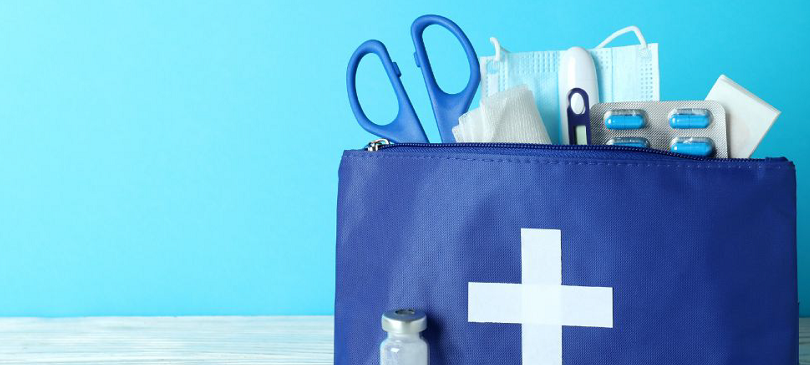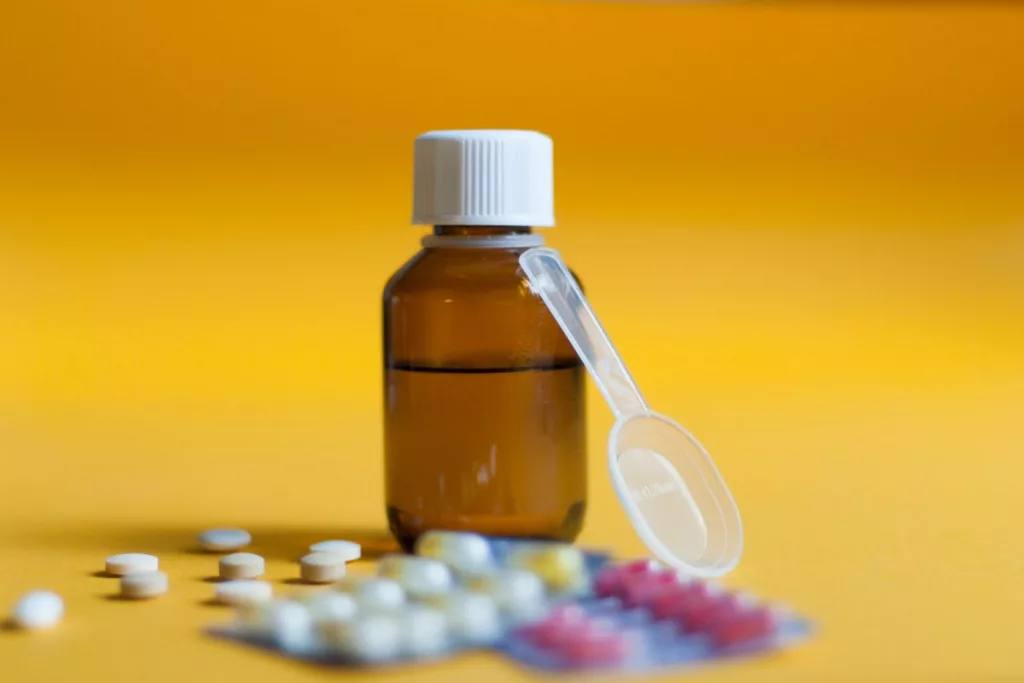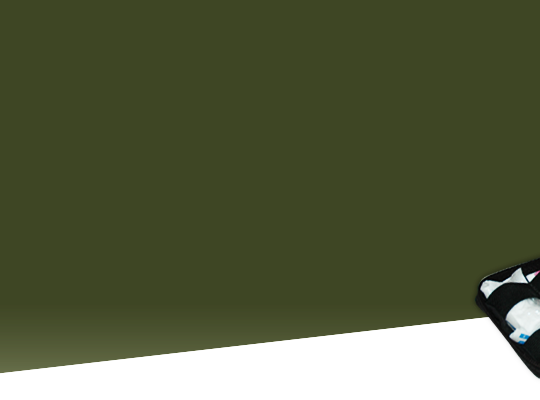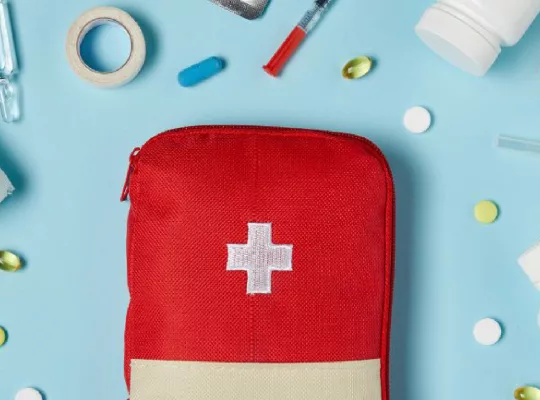When it comes to dealing with minor injuries or medical emergencies, having a well-stocked first aid kit is essential.
While bandages and other similar medical supplies are commonly included, many people often overlook the importance of including essential medications in their first aid kits.
However, knowing what these essential medications are is not always straightforward. Knowing what you should include and what isn’t necessary can be difficult for anyone that isn’t medically trained.
Whether you’re at home, traveling, or enjoying outdoor activities, having the right medications on hand can provide immediate relief and potentially prevent further complications.
In this article, I will explore the must-have medications that should be part of your first aid kit. Having the right medications in your personal first aid kit will keep you prepared and ensure that you have what you need when an emergency arises.
Aloe Vera Gel
We recommend including aloe vera gel in any first aid kit because it has a large number of uses and is very versatile.
Its main purpose is to reduce inflammation and irritation of the skin, so this makes it a beneficial medication in a wide variety of circumstances.
Aloe vera gel can soothe sunburns, moisturize skin, ease skin conditions, relieve bug bites, and heal cracked feet.
It also has many nonmedical uses too, such as removing makeup or exfoliating your skin, and can be used as a shaving cream or lubricant.
Try to find an aloe vera gel that is 100 percent aloe vera and doesn’t have any additional ingredients. Unopened aloe vera gel can last for a couple of years as well, making it a great addition to your hunting first aid kit that won’t need frequent replacements.
Antacids
Antacids work to relieve heartburn and indigestion. They counteract the acid in your stomach and neutralize it by stopping the enzyme that produces the acid.
Antacids can be of great help if you suffer from a burning sensation in your chest or stomach after eating. They also help with feelings o0f being bloated or, in some cases, having a sour or acidic taste in your mouth.
Some people are more prone to heartburn and indigestion than others, but they are symptoms that can hit anyone and can be very uncomfortable or even painful. This is why having some antacids in your first aid kit is a good idea.
Antacids can be bought in liquid, tablet, or chewable forms. Liquid antacids generally work more quickly and are more effective, but have a shorter shelf life than tablet and chewable antacids.
Anti-Diarrhea Medication
There are many different reasons why someone can suffer from diarrhea. Although many of these reasons are not serious and the illness will usually resolve on its own eventually, it can be a miserable illness to suffer from.
It can also greatly affect your life while it is happening, so having anti-diarrhea medication is essential for any first aid kit.
It works by slowing down the movements of the guts, and this in turn slows down the frequency of your bowel movements.
Most anti-diarrhea medications only treat the symptoms and not the cause, but can be useful when diarrhea hits without warning.
Anti-diarrhea medication is available in liquid and tablet form. As with antacids, the tablets usually have a longer shelf life than any liquid medication, and this often makes them a better fit for a first aid kit.
Antihistamines
Antihistamines can help to ease any of the symptoms that are commonly associated with allergies. Although many of us are aware of what we’re allergic to, there is always the possibility of a new or unknown allergy making itself known, so having some antihistamines in your first aid kit is recommended.
This medication can help with hives, itchy skin, sore or itchy eyes, or allergic asthma. In some cases, they can also help with conditions that often aren’t classed as allergies such as travel sickness, nausea, vertigo, and bug bites.
The antihistamines in your first aid kit should only be used for mild allergic reactions. If someone has more severe symptoms, such as difficulty breathing or a swollen tongue, this will require emergency medical attention.
Calamine Lotion
Calamine lotion is a light pink liquid that can be used in many of the same ways as aloe vera gel. It’s well-known for relieving mild itchiness and can be used to soothe many different conditions.
The most popular uses for calamine lotion include relieving the itchiness and discomfort caused by chickenpox, heat rash, hives, bug bites, and close contact with poison ivy and other poisonous plants. Any kind of itchy skin can feel relief after calamine lotion has been applied to it.
However, make sure that you don’t use calamine lotion on any open wounds. It should only be used on unbroken skin and should only be applied topically.
Cough And Cold Medications
Coughs and colds are not serious illnesses, but they can make life miserable while they exist.
There are a wide variety of different cough and cold medications available that target specific symptoms or are more generic medications.
As first aid kits are designed to help with a wide variety of illnesses, I recommend having cough and cold medication that attacks a wide range of symptoms.
Look for ones that help with congestion, headaches, runny noses, and coughs.
Hydrocortisone Cream
This cream can be used for numerous different issues. It’s a steroid cream that works by calming down the immune response of your body to a variety of situations that result in pain, itching, and swelling.
Some of the most common conditions it is used for include psoriasis, eczema, heat rash, reactions to bug bites, and other skin reactions.
Anything that causes your skin to be inflamed might benefit from a layer of hydrocortisone cream being applied directly to the site.
Laxatives
Constipation is very common and can become very uncomfortable. Laxatives help you to empty your bowels when you’re having trouble and other options haven’t worked.
There are several different types of laxatives, and they come in different forms as well as they’re available as pills, capsules, and in liquid form. You can use a pill bottle for keeping the capsules and pills.
Laxatives can get to work in as little as 30 minutes. They’re useful for temporary relief from constipation, but should not be used over the long term.
Pain Relievers
Our final suggestion for your first aid kit is pain relievers. I recommend having some Tylenol (or your pain reliever of choice) in your first aid kit, as these can help with any kind of pain.
We would also recommend keeping some aspirin on hand as these are not only effective pain relievers but can also help if anyone suffers from unexpected chest pain.
Final Thoughts
In this article, I listed the medication that you should include in your first aid kit. As is the case with any medication, make sure you follow the instructions and only use the medication if it is safe for you to do so. In the case of an emergency, contact your doctor or the emergency services at once.




